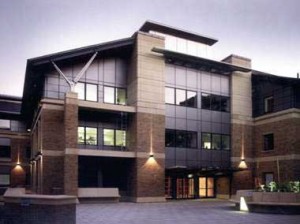THURSDAY, 3 NOVEMBER 2011
Alternative-careers speakers dominated the morning session with thrilling and engaging presentations on diverse employment opportunities, including patent law, drug development, lab product marketing, strategy consulting, and technology transfer.The presentations were mostly from ex-postdocs who have diversified into other fields. This really helped to convey to the audience the reality and challenges faced during career changes and provided vital guidance on the best way to approach these transitions. An impressive range of options was highlighted by these talks. However, some of the talks lacked a professional finish and would have benefitted from a little more preparation.
Dr Anne Forde, the Cambridge University Careers Advisor for Life Science PostDocs opened the afternoon session by outlining the reasons for continuing in academia from a PhD and the transferable skills gained by PostDocs as a result of extended life sciences academic research.
The highlight of the mini-retreat was the panel discussion. Professor Rigby (Deputy Chairman of the Board of Governors, Wellcome Trust), Dr. Caulcott (Director of Innovation and Skills, BBSRC) and Professor Leyser (Bioscience Skills and Careers Strategy Panel Chairperson, BBSRC) provided a fascinating insight into the attitude of the major funding bodies. Many of which now strongly emphasise and encourage researchers in developing transferrable skills, particularly with regard to science communication and public engagement.
Professor Smith (Deputy Head of Biochemistry Department), Dr Sargan (Outgoing Director of Graduate Education, Life Sciences) and Dr Forde answered questions from the university perspective. As chairperson, Dr Hesketh of the Biochemistry Department posed previously submitted questions and accepted queries from the audience. Several major themes were discussed, including the time constraints posed by short-term postdoc funding contracts, and advice on academic career progression. One point heavily emphasised by panel members was the importance of teaching and science outreach as well as lab-work.
The Biochemistry PostDoc committee have received extensive positive feedback from everyone involved and hope that the event presented “choices for Postdocs that they had not considered before”. All in all, I think they succeeded, and I shall be looking out for the Biochemistry Mini-Retreat next year.
Written by Luke Maishman

